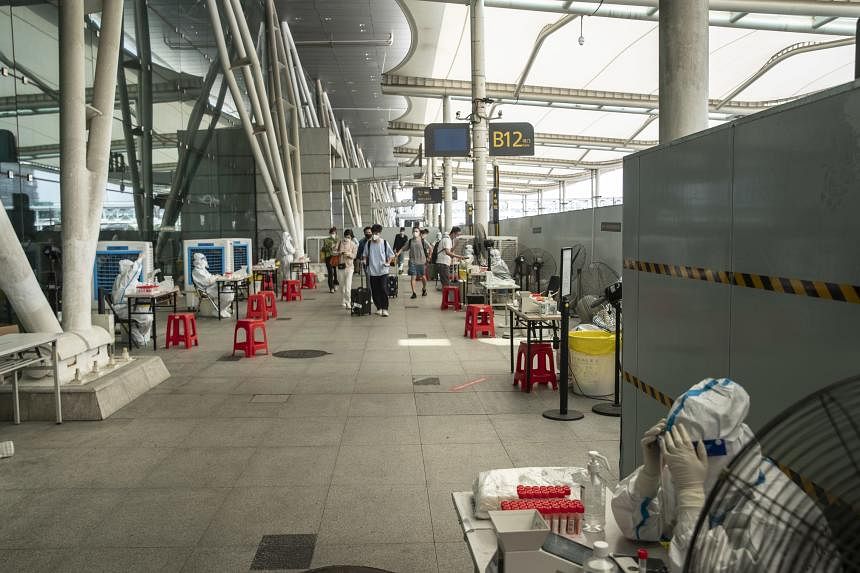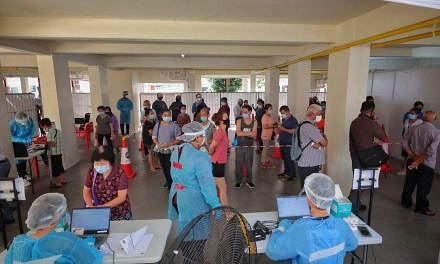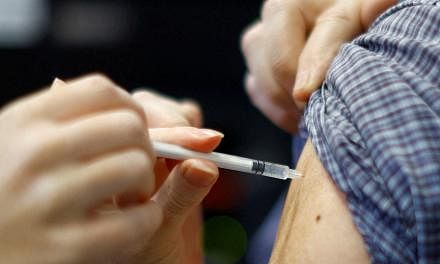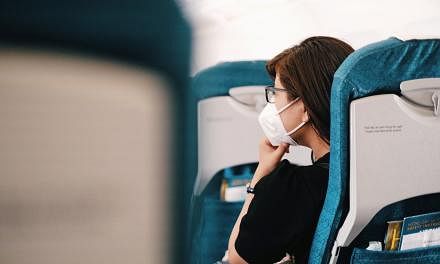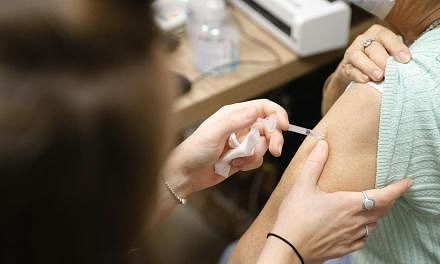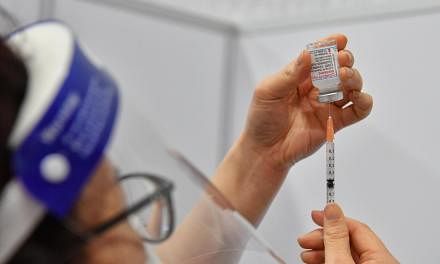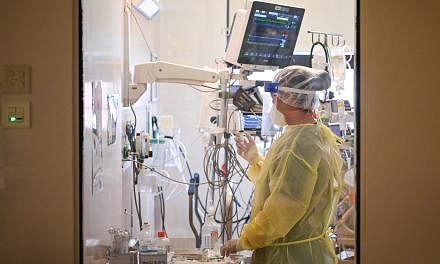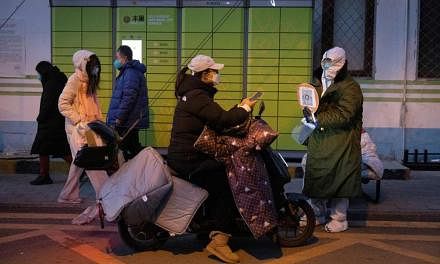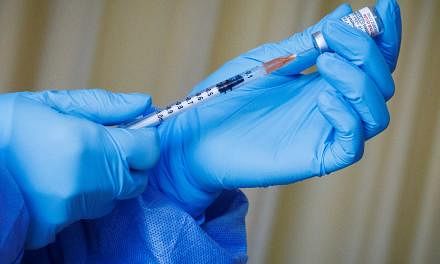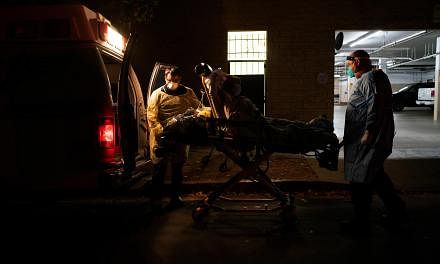BEIJING/SHANGHAI - A city near Beijing that was rumoured to be a test case for China dispensing with all virus restrictions has suspended schools, locked down universities and asked residents to stay at home for five days, a potential sign officials are reverting to tighter Covid Zero curbs as cases multiply.
Shijiazhuang – a city of some 11 million people about 300km from the capital – has forbidden residents in areas deemed high risk from leaving their homes, with everyone else advised to stay at home “in principle”, according to the statement carried by the official Shijiazhuang Daily.
A mass Covid-19 testing exercise will be undertaken in six major districts, and universities will be put into so-called closed loops, where students are unable to leave campuses. All in-person classes at primary and middle schools have been halted.
The moves come after officials in Shijiazhuang had to rebuff speculation the city had been chosen as a pilot zone for a laxer virus approach, rumours that sparked anxiety among some residents.
The lockdown-like moves also come just over a week since China issued a suite of guidelines aimed at making its Covid-19 approach more targeted. The 20-point playbook told officials to stop mass testing in most areas, with citywide tests – similar to what Shijiazhuang appears to be doing – only to be undertaken when the source of infection is unknown.
But in a sign that top leaders are worried that local officials have over-relaxed requirements on the ground, the National Health Commission released documents on Monday meant to guide the implementation of the 20 measures, which included a directive that states cities above 10 million people must undertake mass testing at a district level when an outbreak is at the risk of growing.
One round of mass PCR testing is also required in areas with high Covid-19 risks before they can be reclassified as low risk areas after 5 days of zero new infections, the documents said.
Shijiazhuang saw a rebound in cases over the weekend, which may explain the tougher response. The city was seeing more than 500 new infections a day in mid-November, but the tally eased off after the new guidelines were introduced and many residents reported a marked reduction in testing. Cases surged to 641 for Sunday.
Elsewhere, Beijing reported three Covid-19 deaths over the weekend – the nation’s first documented virus-related fatalities since May – with a worsening outbreak heightening concerns the capital may see a return of tighter restrictions.
On Saturday, China saw its first Covid-19 death since the Shanghai lockdown earlier in the year, with a man, 87, dying from the virus in Beijing. Another two deaths were reported in the capital for Sunday.
Schools in the city’s Haidian district switched to online learning from Monday in order to protect children’s health, education authorities said. There were 951 new infections in the capital for Sunday.
China’s swelling caseload, and uncertainty about how officials will balance the new Covid-19 guidelines with stamping out virus spread sparked a drop in Chinese stocks and the yuan. The Hang Seng China Enterprises Index fell as much as 3.7 per cent, falling for the fourth session, while reopening stocks including casinos and restaurant chains tumbled.
“It feels like one step forward, two steps back,” said Mr Willer Chen, an analyst at Forsyth Barr Asia. “The market had been too optimistic,” he said, adding that winter’s approach and the already high level of cases makes reopening difficult.
Central government officials and state media have consistently reinforced that the new Covid-19 approach doesn’t represent a relaxation of China’s approach. That’s left local authorities in somewhat of a quandary, with outbreaks swelling as the weather cools in many parts of the country.
Cities like Guangzhou, in the south, are enforcing targeted lockdowns over a citywide order, but cases remain elevated, at more than 8,000 a day. Meanwhile, Chongqing, a megacity in the southwest, has declared so many individual high-risk areas that the city is effectively locked down anyway. Residents in areas deemed high risk are not allowed to leave their homes.
The result has been a significant drop in activity, with subway use in major cities with large outbreaks still very low, even though the new approach is supposed to ensure less disruption.
China reported more than 26,000 new cases across the nation on Sunday, and the persistent outbreak increases the likelihood of even more deaths.
Years of propaganda have seen the government champion Covid Zero as a core reason the country has avoided the mass loss of life seen in other parts of the world, with the recent fatalities adding to concerns authorities may look to dial back their easing. Low vaccination rates among elderly and vulnerable citizens remain one of the biggest hurdles to a fuller reopening. BLOOMBERG
